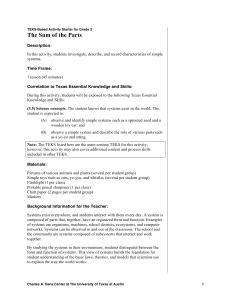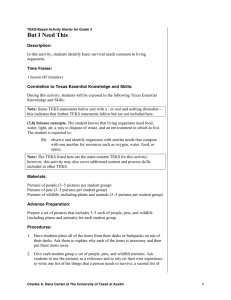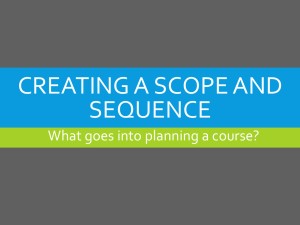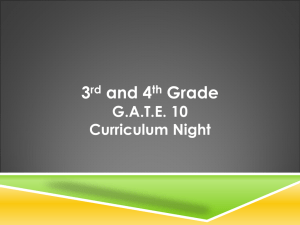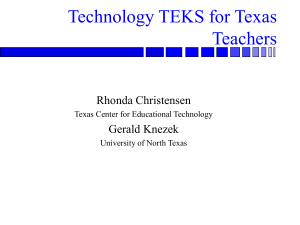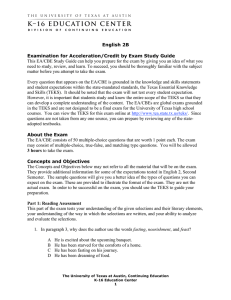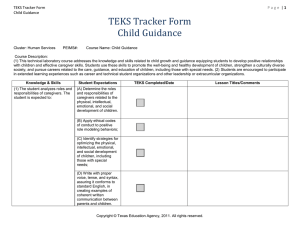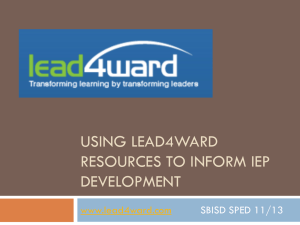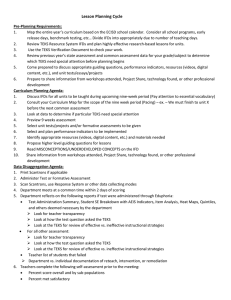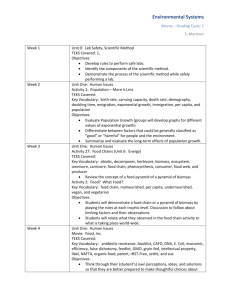G.A.T.E. 10 Curriculum Night
advertisement
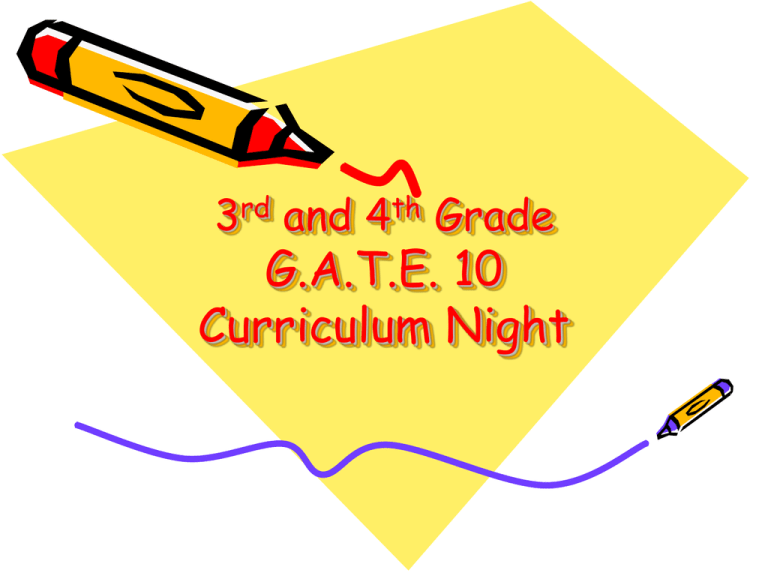
3rd and 4th Grade G.A.T.E. 10 Curriculum Night Questions • If you have questions, please write them on a sticky note, and place them on the questions paper. We will answer all the questions in a newsletter by Friday, September 21st. Mission Statement The mission statement of the GATE 10 Program is: We believe in persevering through the rigor of true learning in order to: expand individual boundaries, develop character, and thrive in a competitive world. Integrated Studies 3rd Grade Teacher: Leslie O’Daniel 4th Grade Teachers: Cyndi Anderson (HES), Caroline Garcia (PES), Dallena Nash (LES) Curriculum Overview • Parallels the standards (TEKS) of a regular classroom while embedding rigor, depth, and complexity • Integrated Unit Studies – – – – – Novels Non-fiction Art Music Social Studies • Latin Stems • Grammar • Writing Workshop Humanity Circles • “Humanity” or “Literature” Circles are flexible groups of students who have read the same book, and meet weekly to discuss it. • Books provided by the school. • Humanity Circles… • • • • • • • Promote a positive attitude toward reading Provide a choice and encourage responsibility Encourage extensive/intensive reading Invite discussions that lead to inquiry and critical thinking Support responses from multiple perspectives Foster interactions and collaboration Nurture reflection and self-evaluation – (Owen, 1995) Third Grade Universal Theme: Establishing Identities within Various Communities 1. 2. 3. 4. 5. Enduring Understandings: We learn about ourselves by studying the lives of others. My personal qualities can help or hinder the formation of relationships. What others think about (community) affects how we think about ourselves. In a culture where we are bombarded with other people trying to define us, the individual has responsibilities to various communities, who have responsibilities to us. Parallels exist between our “growing” up and a community. Outcomes • Inspire Confidence • Fostering Participation • Build for Success • Think with Depth and Complexity! Homework in 3rd IS • Given to students at the beginning of the week • Due the following Monday • Spelling quizzes every Friday • Schedule time for homework (30 mins. a day) • Communicate homework in the weekly newsletter • Reading Log-15 minutes of reading daily; due Mondays Fourth Grade • Universal Theme: There are many universal adversities which results in universal adaptations. – Journeys • Esperanza Rising, by Pam Munoz-Ryan • Explorers, Regions of Texas, Native Americans, Spanish Missions – Freedom • Bud, Not Buddy, Curtis • “Texas Rumblings and Ramblings,”-Changes within Texas – Rebellion • From the Mixed-Up Files of Mrs. Basil E. Frankweiler, by Konigsburg • Texas Revolution, Civil War, Annexation, Statehood, and Oil Boom, Industrial Age to Present-Day Texas A Day in the Life… • A typical class incorporates every subject. A day in the IS classroom might include: – Reading Workshop • • • • • A short read-aloud from a companion novel Reflection (Reader’s Response Notebook) Reading Skill Lessons (Mini-lessons) Literature circles Ludic Reading • • • • Writing Process Grammar Latin Mini-lessons – Writing Workshop – Social Studies • Integrated with Reading and Writing Workshops • Primary and Secondary Sources • Collaborative Learning – Engaged students focused on reading, writing, conversation, open-ended questioning, and connecting to the Depth and Complexity icons. Homework is an extension of what we have worked on and discussed during the day. Outcomes of I.S. • Inspire Confidence • Fostering Participation • Build for Success • Making Connections Across Disciplines • Developing Metacognition (selfthinking) at a Depth and Complexity level Math Teachers: Jaci Baxter (HES) Sandra Dennis (LES) Grant Kuneman (PES) MATH BASICS • Our curriculum is accelerated, focusing on depth and complexity. In third grade, we cover the 3rd grade TEKS and a majority of 4th grade TEKS. In 4th grade, we review 4th grade TEKS and cover all of the fifth grade TEKS. • GT math classes meet everyday for 90 minutes. Daily Math Lessons • We teach the TEKS through problem solving and hands on experiences. – Examples: • Manipulatives • Analyzing data to determine meaning of words and how to build conceptual knowledge • Variety of strategies Independent Practice Looks Like… • Playing Math games • Problem solving in groups, with a partner, or independently • Small group teacher sessions • Journal reflections • Practice applying skills at a deeper level Homework • Problem solving: 3rd--“Stretch Your Thinking” questions 4th—Math Olympiad Opportunity to share strategies and attempts— even unsuccessful ones—with classmates on due date • Skill review/practice as needed • Daily fact fluency practice (3rd) Expectation for improved success as the year progresses • Time commitment: Max. 20-30 mins per night unless by choice Report Card Changes were made to the report card? A few changes have been made to our report card this year based on the feedback we received for parent and teacher surveys. We believe these changes make our system of reporting your child’s academic achievement even better! Your child’s progress will be reported on the standards set for each quarter. Documents have been created for each content area with a breakdown of expectations for each quarter. You will see your child’s student achievement based on the end-of-year expectations at the end of the school year. How will we track student progress? • • • • Rubric scores-amount of points earned out of the total points available for the assignment Example : 4/6 on an assignment. Checked worked sent home with rubric scores and teacher comments Learning Goal reflections (sent home from IS) Teacher anecdotal notes • Informal assessments completed in class • Assessments of learning objectives Report Card What are the Performance Indicators? The performance indicators are used to report academic performance for each quarter. • E-Exceeds Standard (this level has been added to report to parents when their child is exceeding the expected standard either during the marking period or at the end of the school year.) • M-Meets the Standard (given when your child has mastered the standard) • N-Nearing Standard (given when your child is still working on the standard with teacher instruction) • B-Below Standard (given when a student is working below grade level for a particular standard. What are the Behavior and Work Habits? • • • • Behavior and Work Habits will be reported for each content area. C-Consistently O-Often S-Sometimes R-Rarely Lovejoy Gifted Association • The LGA is a not-for-profit advocacy group for all gifted children in Lovejoy ISD. Membership is open to all persons interested in the mission of the organization. • Academic Enrichment: http://www.lovejoyisd.net/MP.cfm?P=6566 GATE 10 Thank you for sharing your brilliant children with us this year! Please do not hesitate to contact us if you have questions throughout the year, or write it on a sticky note if you have one tonight.


